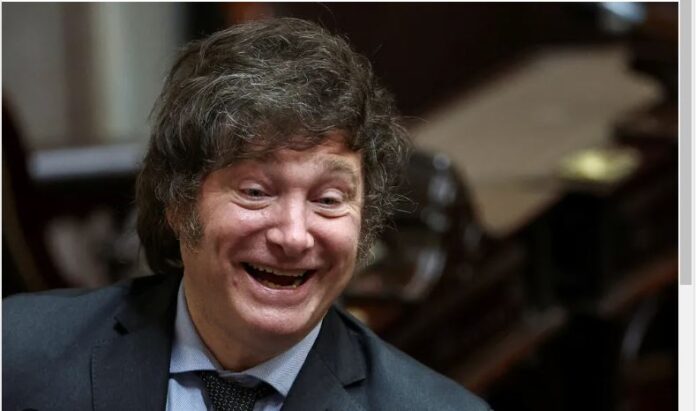Jacob Davis
CSMS Magazine
Last year, Argentine politician and economist known for his libertarian views surprised the world when he won the presidential election. Everyone thought Alberto Fernández, the incumbent president was going to win. Argentina has historically been marked by a deep-seated political divide where the political landscape has been dominated by an elite group of politicians with affiliation to either Peronism, liberalism, socialism, and conservatism.
The country’s economic stagnation created significant challenges for former president Fernández as he tried to unify a polarized country grappled with economic instability, high inflation, and social issues. There was a growing disillusionment among parts of the population with established political parties, leading to the emergence of alternative voices like Milei, who advocated for drastic economic and political reforms.
Milei’s won on a populist platform, throwing false hope along the campaign trail while criticizing government intervention in the economy and advocating for free-market principles. He garnered attention for his unorthodox style and his calls for radical changes in Argentina’s economic policies.
The political divide in Argentina has been a longstanding issue, with various factions advocating for different approaches to governance, economic policies, and social reforms. This division has often led to heated debates, protests, and a lack of consensus on crucial national issues.
One of the core divides in Argentina revolves around Peronism, a political movement stemming from former President Juan Domingo Perón’s legacy. Peronism encompasses a broad spectrum of ideologies, spanning from left-wing factions advocating for social justice to more conservative elements focusing on nationalism and populism. This ideology has been central to Argentina’s political discourse and has significantly shaped the country’s policies and governance.
Moreover, public trust in political institutions has faced erosion due to corruption scandals, inefficiencies, and a perceived lack of accountability among politicians. This disillusionment has contributed to a growing sense of disenchantment with traditional political parties and a search for alternative voices and solutions.
Will Javier Milei deliver? We’ll have to wait.
Note: Jacob Davis is editor at large for CSMS Magazine. He also writes on sociopolitical issues.
Also see: Donald Trump’s legal troubles and the Republicans’ dilemma


